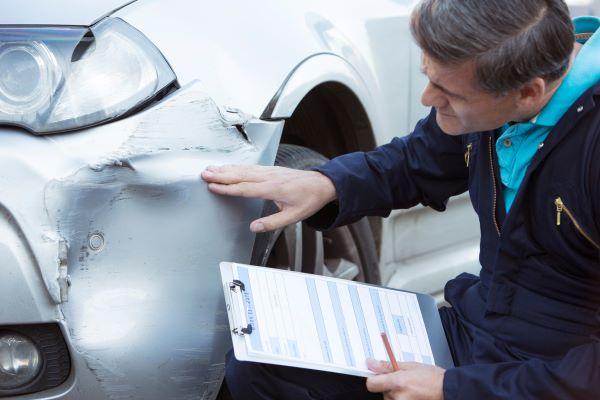Accidents during home or workplace installations can be terrifying and overwhelming, leaving you feeling vulnerable and unsure of what to do next. Whether it’s an unexpected injury from faulty equipment or an unsafe setup, the moments after an installation accident are often filled with shock and confusion. But amidst the chaos, taking the right steps to file a claim is crucial—not just for your financial security, but for your peace of mind. In this article, we’ll walk you through your first steps after an installation accident, helping you regain control and protect your rights when you need it most.
Table of Contents
- Understanding Your Rights and the Importance of Timely Action
- Gathering Crucial Evidence to Strengthen Your Claim
- Navigating Medical Documentation and Expert Evaluations
- Choosing the Right Support to Advocate for Your Case
- In Conclusion
Understanding Your Rights and the Importance of Timely Action
When faced with an installation accident, knowing your rights can feel overwhelming, especially amid the shock and disruption. However, understanding that you are entitled to protection and compensation is empowering. Your rights often include the ability to seek medical care, claim compensation for lost wages, and receive repair or replacement for damaged property. Recognizing these rights early on is crucial, as it provides a roadmap for moving forward and asserting yourself confidently throughout the claims process.
Timely action is not just a recommendation; it’s a necessity. Delaying your claim can lead to missed deadlines, lost evidence, and weakened cases that jeopardize the justice you deserve. To safeguard your future, begin by:
- Documenting all details of the accident thoroughly with photos and notes.
- Informing your employer or the relevant party immediately.
- Seeking medical attention to confirm any injuries.
- Contacting a legal professional familiar with installation accident claims.
These steps not only preserve your rights but demonstrate your commitment to resolving the situation swiftly and effectively.
Gathering Crucial Evidence to Strengthen Your Claim
When every second counts after an installation accident, capturing detailed evidence becomes your strongest ally in securing the compensation you deserve. Begin by documenting the immediate aftermath using your phone or camera: snap photos of the accident site, any hazards present, and the injuries you’ve sustained. Visual proof paints a vivid story that words alone cannot, bridging the gap between your experience and the legal process. Don’t stop there—take careful notes about what happened, including the date, time, and the names of witnesses or workers involved. This groundwork will transform your claim from a mere complaint into an undeniable account of the event.
Beyond physical evidence, collecting official records is equally vital. Request copies of any incident reports filed with your employer or the company responsible for the installation. Medical documents detailing your treatment and diagnosis further cement the legitimacy of your claim. And remember, your voice matters—if anyone else witnessed the accident, ask them for a written statement or permission to share their contact details. These elements combined weave a comprehensive narrative of your experience, building an irrefutable case that showcases the true impact of the accident and holding the responsible parties accountable.
Navigating Medical Documentation and Expert Evaluations
After an installation accident, the flood of paperwork and medical jargon can feel overwhelming, but staying organized is your lifeline. Prioritize gathering all medical documents—doctor’s reports, hospital bills, prescriptions, and injury assessments. These papers don’t just tell your story; they validate your claim and set the foundation for your fight. Remember, every note from your healthcare providers is a brick in the wall of proof you’re building. Keep copies, date everything, and use a simple filing system to make your evidence easily accessible when you need it most.
Expert evaluations often feel intimidating, but they are crucial in establishing the full impact of your injuries. Specialists may assess your physical condition, psychological state, and potential long-term impairments. Don’t hesitate to ask questions and request clear explanations—this is about your health and your rights. In this process, your emotional strength is just as important as your paperwork. Hold onto your truth; the experts are there to help measure your experience, so you get the justice and support you deserve.
Choosing the Right Support to Advocate for Your Case
When facing the aftermath of an installation accident, feeling overwhelmed and uncertain is completely natural. The right support can transform your experience, turning confusion into clarity and isolation into empowerment. Seek out professionals who don’t just know the law but genuinely care about your well-being. A compassionate advocate will not only guide you through complex legal jargon but also listen to your story, ensuring your voice is heard. Surround yourself with people who offer emotional understanding, practical advice, and a commitment to fight for your rights.
Don’t underestimate the power of a strong support system; it often becomes the backbone of your claim’s success. Consider these elements when choosing your advocate:
- Experience in handling installation accident claims, ensuring they understand the unique challenges you face
- Transparent communication style that keeps you informed every step of the way
- Accessibility and willingness to answer your questions, no matter how small they may seem
- Empathetic approach that respects your personal journey and the impact the accident has had on your life
In Conclusion
Filing a claim after an installation accident can feel overwhelming, but remember—you’re not alone. Taking those first steps is about more than just paperwork; it’s about standing up for yourself and seeking the support you deserve. Trust in the process, reach out for help when you need it, and know that every action you take brings you closer to healing and justice. Your safety and peace of mind matter most, and by being informed and proactive, you’re reclaiming control in a difficult moment. Stay strong—you’ve got this.





